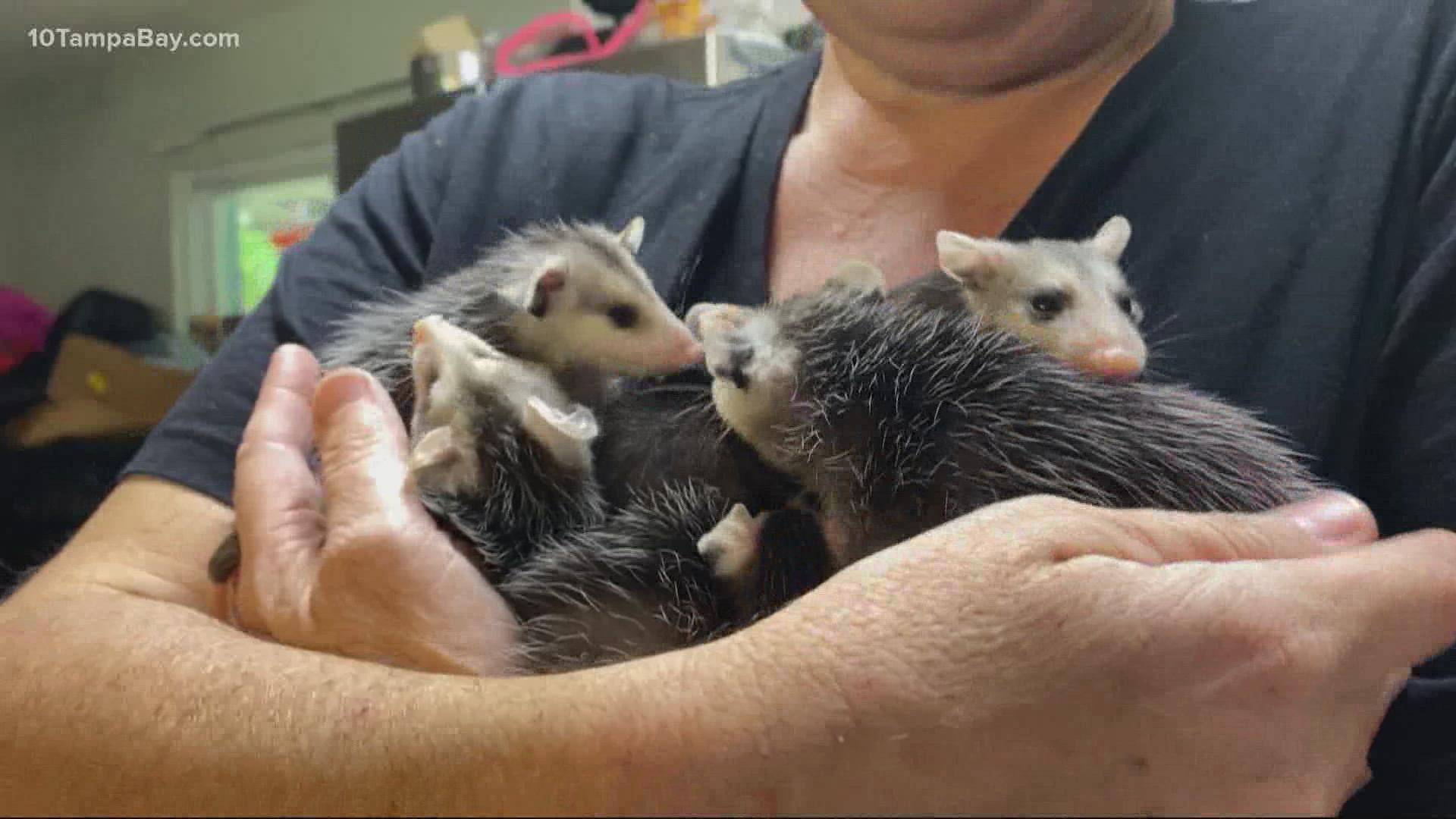ST. PETERSBURG, Fla — It's a job that can easily become overwhelming for people with hearts too big. Wildlife rehab volunteers can get a call at any hour, asking if they can take in animals found hurt or abandoned.
If no one takes them in, “they would die," Paula Hodge said. "The populations would be depleted."
Hodge is sub-permitted with Wright Ranch Rescue and works with several local organizations to take in and care for wildlife.
Hodge is currently caring for more than 30 animals, including bearded dragons, chameleons, squirrels, flying squirrels, raccoons, rats, a snake, and several birds.
“And I would rather take on another mouth to feed than have them suffer. People think that it is glamorous," Hodge said. "People just see the really cute pictures of us feeding babies."
While that is a small part of the job, Hodge said most of is far from glamorous.
“It’s a lot of hard work. It’s cleaning the cages every single day. It’s a lot of money and time that goes into it and it’s all a volunteer. You don’t get paid," Hodge said.
The amount of time and effort Hodge puts into caring for animals has taken over much of her living spaces. On top of her volunteer work, she has a full-time job as a payroll officer for an emergency response team. She works remotely, allowing her to manage all the animals she takes in.
Cages are stacked up throughout her living room, additional carts are filled with medical supplies, and a pantry cupboard is filled with a variety of animal foods.
To help reclaim some of her living spaces, Hodges is fundraising to purchase an outdoor shed and an outdoor enclosure to help animals transition back into the wild.
“[The enclosures are] really good for them for pre-release," Hodge said. "They get away from mama. I still feed them, I still give them water, I still clean out their cages, and provide everything for them. I just am not hands-on anymore. So, I stop actually handling them and picking them up, and they wild up very quickly."
Hodge says many of the animals she cares for have babies at this time of the year, at the start of spring. Because of that, there is a greater need for rehab volunteers to bring the animals back to health or raise them to an appropriate age for release.
"We’re getting calls every single day. Just this morning I had two people call to drop off babies to me, and a third one’s about to come," Hodge said.
To donate to help fund Hodge's shed and outdoor enclosure, click here.
To learn about the organizations Hodge works with, click the links below.

